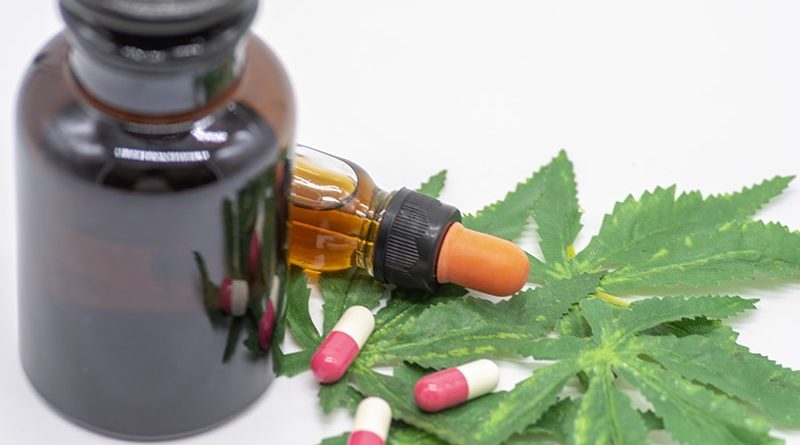OTC Cannabidiol Products Tied to Improved Pain, Sleep, Anxiety
Over-the-counter cannabidiol (CBD) products appear to improve pain, sleep, and anxiety disorders, preliminary research suggests.
Interim findings from the Advancing CBD Education and Science (ACES), a 100% virtual, open label, randomized controlled trial, show study participants experienced various degrees of “clinically meaningful” improvements in sleep quality, anxiety, and pain.
“ACES is the largest clinical trial ever conducted on commercially available CBD products and provides first-of-its-kind real world evidence into what conditions users may experience benefit from CBD usage, whether these benefits are clinically meaningful, what attributes of CBD products may impact health outcomes, and what side effects may occur,” study co-investigator Jessica Saleska, PhD, MPH, director of research at Radicle Science, the company that conducted the study, told Medscape Medical News.
Scant Evidence
Despite the growing market size of commercially available CBD products “there is still scant data on the effectiveness of over-the-counter cannabinoid products due to the cost, speed, and scale limitations of the current approach to scientific research,” Jeff Chen, MD, MBA, co-founder and CEO of Radicle Science, told Medscape Medical News
One of the study’s goals, said Ethan Russo, MD, a neurologist, founder/CEO of CReDO Science, and scientific advisor for Radicle, is to help consumers make informed decisions before purchasing and using commercially available oral CBD products.
Designed to eliminate all physical infrastructure, which minimizes costs and facilitates faster execution, ACES was conducted much like a phase 4 clinical trial, collating real-world data gathered over 4 weeks.
“The process that Radicle scientists [have] advanced is sort of a crowdsourcing approach to doing clinical science,” Russo said. “Hopefully, there is going to be a considerable amount of data generated that [will] affect people’s buying options.”
The study also aimed to evaluate product attributes, including composition, mode of use, dosage, dosage timing and frequency, and their correlation to degrees of outcomes.
Russo explained why product composition is an important factor, especially when dealing with CBD. “What happens with any given [CBD] preparation is going to be totally a function of other components, if any,” he said.
“For example, there’s this mistaken notion that cannabidiol is sedating; it is not. Pure cannabidiol is stimulating in low and moderate amounts. Where the confusion has arisen is that the early chemovars containing cannabidiol were also predominant in myrcene, the sedating terpene, [thereby] creating this misimpression that it is good for sleep,” he added.
However, CBD might also affect sleep by reducing anxiety that interferes with it. “What’s clear is that cannabidiol is an anti-anxiety agent, if you have a sufficient dose,” Russo said.
The 4-week study included 2704 participants aged 21 years and older, self-reporting anxiety, chronic pain, or sleep disturbances as a primary reason for taking CBD. Study participants were randomly assigned to receive one of 13 commercially available oral CBD extracts.
Participants were allocated to one of 14 cohorts, comprising 13 treatment groups with 208 participants each who received a single CBD product, or a waitlist control group of 296 participants who received product at the study’s end.
The primary outcome focused on “clinically meaningful” changes, which were defined as “distinct and palpable improvements in quality of life through improvements in respective health outcomes.”
Secondary outcomes included changes in sleep, anxiety, and pain based on several validated indices including the PROMIS (Patient-Reported Outcome Measurement Information System) Sleep Short Form, PROMIS Anxiety Scale, Patient Global Impression of Change (PGIC); Pain, Enjoyment, General Activity (PEG) scale; and the General Anxiety Disorder-7 (GAD-7) scale.
The interim study results are promising, with participants reporting, on average, a 71% improvement in well-being. Additionally, 63% reported clinically meaningful improvements in anxiety, and 61% in sleep quality. The CBD products provided smaller benefits in pain management, with less than half (47%) experiencing meaningful improvements.
In addition to improvement in sleep, pain, and anxiety, these data highlight how rapidly benefits occurred; most were realized during the first week of the study, with up to 61% of treatment group participants reporting a therapeutic effect within 1 to 4 hours of taking their assigned product.
Overcoming the Placebo Effect
Commenting on the research for Medscape Medical News, Justin Strickland, PhD, an assistant professor of psychiatry and behavioral sciences at Johns Hopkins University who was not involved in the research, said without knowing a lot about the pharmacology of the products being tested, early dramatic improvements in these measures, such as sleep impairment, are common.
“There are some data to suggest that there is an expectancy effect when we talk about the therapeutic benefit of cannabinoid products, (ie, when someone has the expectation that they are going to experience a stronger effect) but this is true of any drug in an open label trial,” Strickland added.
Russo takes the point a step further.
“It’s getting near impossible to look at cannabinoid compounds, even with randomized controlled trials because of the burgeoning placebo responses. When you couple it with the fact that consumers have the mistaken notion that cannabis-based drugs are miraculous, the expectations are so high that everyone thinks that they’re on the real stuff, even if it’s a placebo group.”
Still, both Strickland and Russo highlight the fact that ACES mirrors real-world experience, which will they hope will inform the use of CBD and CBD-based preparations moving forward. By removing certain barriers like institutional bureaucracy or federal funding restrictions inherent to more traditional randomized controlled trial design, ACES might provide data that bridge the gap between efficacy and effectiveness.
ACES was funded by Radicle Science. Chen is co-founder and CEO of Radicle Science. Russo and Strickland have disclosed no relevant financial relationships.
For more Medscape Neurology news, join us on Facebook and Twitter
Source: Read Full Article



